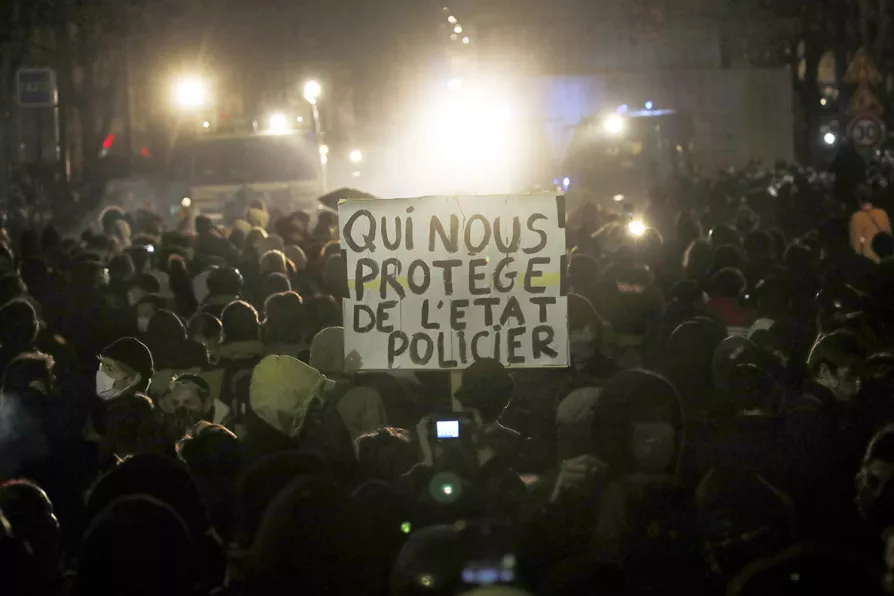Cuba, despite the privations, remains a beacon of sovereignty and resistance to imperialism, writes BERNARD REGAN

 SINISTER: A protester holds a board reading: ‘Who protects us from the police state?’ during a demo against the Bill on police images, in Paris last Saturday
SINISTER: A protester holds a board reading: ‘Who protects us from the police state?’ during a demo against the Bill on police images, in Paris last Saturday
AGAINST a backdrop of street protest — even in the midst of a Covid lockdown — and increasing police violence and repression, France passed the draconian Global Security Law this week, which could make it an offence punishable by a year in jail and a €45,000 fine to film, post and identify police officers committing violent actions.
Representatives of President Emmanuel Macron’s LREM party, whose title La Republic En Marche claims that they are concerned about rights and liberties, on Tuesday morning would have seen footage on the news of the police brutally rousting homeless people from Republique, the square commemorating these rights.
On Tuesday afternoon they voted in favour of the law, claiming that there was no contradiction between the two events.

DENNIS BROE gives an update on the last week of anti-austerity protests against the Macron regime, which has seen the supposedly more right-leaning Gilets Jaunes join with the unions and the left

The desperate French president keeps running up the same political cul-de-sac. DENNIS BROE offers an explanation












